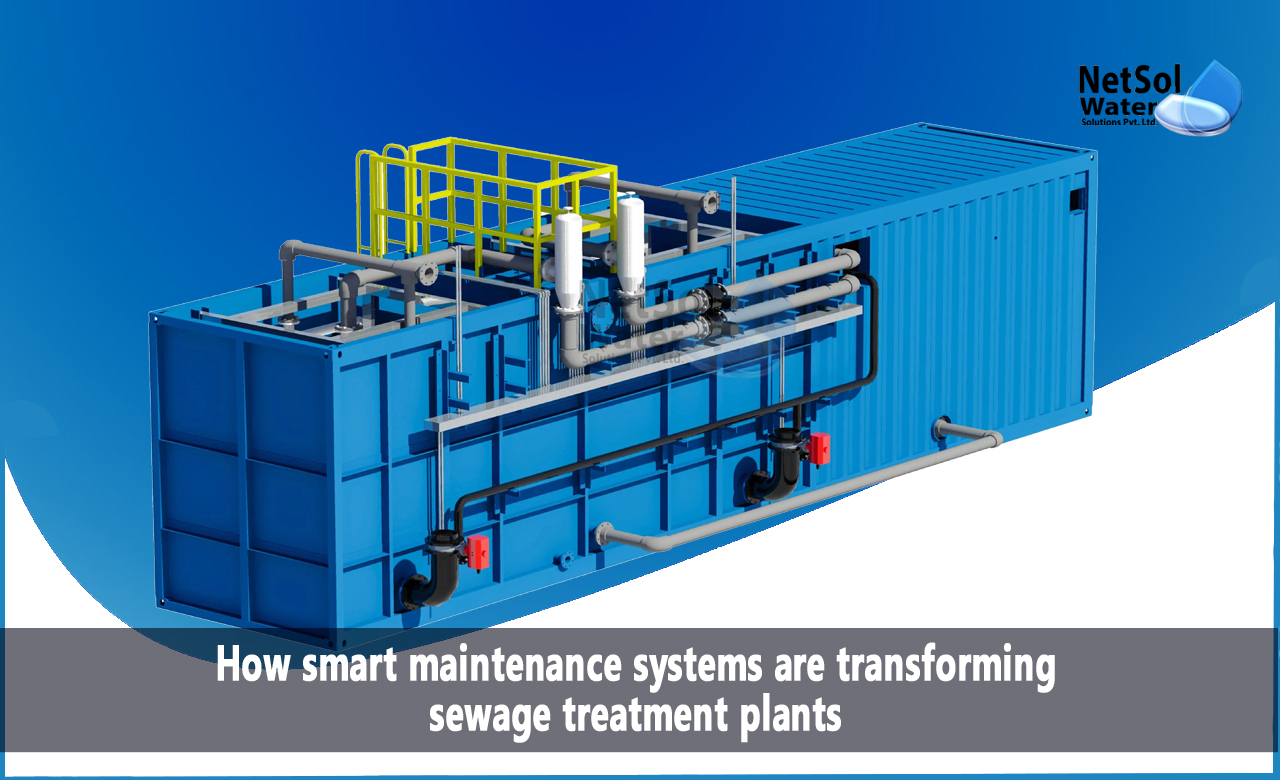How smart maintenance systems are transforming STP Plants?
As urban populations continue to grow, effective management of wastewater and sewage treatment becomes increasingly crucial. Sewage treatment plants (STPs) play a vital role in ensuring the safe and efficient disposal of wastewater, protecting the environment and public health. To optimize the performance and operational efficiency of these facilities, smart maintenance systems have emerged as game-changers. By integrating advanced technologies and data analytics, STPs can improve their operational processes, minimize downtime, and enhance overall efficiency.
In this blog, we will explore how smart maintenance systems are transforming sewage treatment plants and revolutionizing the wastewater management sector.
The Need for Smart Maintenance Systems in STP Plant
Traditionally, STPs faced several challenges when it came to maintenance and operational efficiency. Manual inspection and reactive maintenance practices often led to higher costs, increased downtime, and suboptimal performance. Identifying potential issues in real-time and implementing proactive maintenance strategies was a significant hurdle. This is where smart maintenance systems come into play, combining the power of automation, sensors, data analytics, and predictive algorithms to revolutionize sewage treatment plant management.
Key Benefits of Smart Maintenance Systems
- Real-time Monitoring and Analytics: Smart maintenance systems leverage sensor technologies to monitor key parameters in real-time. This includes measuring flow rates, water quality, pressure levels, and energy consumption. By continuously collecting data, STPs can identify anomalies and detect potential issues before they escalate. This proactive approach minimizes downtime, reduces operational costs, and ensures optimal plant performance.
- Predictive Maintenance: Utilizing data analytics and predictive algorithms, smart maintenance systems can forecast equipment failures or maintenance requirements. By analyzing historical data, patterns, and trends, the system can predict when a component is likely to fail. This enables STPs to schedule maintenance activities in advance, preventing unexpected breakdowns and reducing the risk of costly repairs. Predictive maintenance helps optimize equipment lifespan, reduce spare parts inventory, and improve overall operational efficiency.
- Remote Monitoring and Control: Smart maintenance systems enable remote monitoring and control of STPs. Plant operators can access real-time data, performance metrics, and alerts from any location. This enhances operational flexibility and allows for quick decision-making in response to changing conditions. Remote control capabilities also enable operators to adjust process parameters, optimize energy consumption, and ensure compliance with regulatory standards.
- Energy Efficiency and Resource Optimization: Energy consumption is a significant cost factor in sewage treatment plants. Smart maintenance systems enable the optimization of energy usage by analyzing data and identifying opportunities for energy conservation. By monitoring energy-intensive processes and equipment, STPs can implement energy-saving strategies, such as variable frequency drives and process optimization, resulting in substantial cost savings and reduced environmental impact.
- Enhanced Asset Management: Smart maintenance systems provide comprehensive asset management capabilities. By maintaining a digital record of equipment performance, maintenance history, and life cycle costs, STPs can make informed decisions regarding repairs, replacements, and upgrades. This facilitates long-term asset planning, reduces downtime, and extends the lifespan of critical infrastructure.
Conclusion
The integration of smart maintenance systems in sewage treatment plants is transforming the wastewater management landscape. By leveraging real-time monitoring, predictive analytics, and remote control capabilities, these systems enhance operational efficiency, reduce downtime, and optimize resource utilization. Sewage treatment plants can benefit significantly from implementing smart maintenance systems, ensuring reliable and sustainable wastewater treatment, protecting the environment, and improving public health. As technology continues to advance, the potential for further optimization and innovation in the wastewater management sector is vast. By embracing smart maintenance systems, STPs can keep pace with the growing demands of urbanization and contribute to a cleaner, healthier future.
Netsol Water is Greater Noida-based leading water & wastewater treatment plant manufacturer. We are industry's most demanding company based on client review and work quality. We are known as best commercial RO plant manufacturers, industrial RO plant manufacturer, sewage treatment plant manufacturer, Water Softener Plant Manufacturers and effluent treatment plant manufacturers. Apart from this 24x7 customer support is our USP. Call on +91-9650608473, or write us at enquiry@netsolwater.com for any support, inquiry or product-purchase related query.



